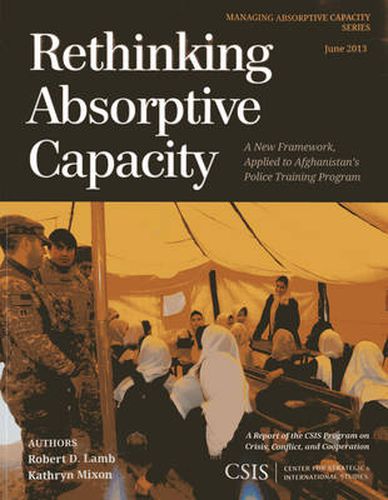Readings Newsletter
Become a Readings Member to make your shopping experience even easier.
Sign in or sign up for free!
You’re not far away from qualifying for FREE standard shipping within Australia
You’ve qualified for FREE standard shipping within Australia
The cart is loading…






When recipients cannot absorb the aid and attention they are offered, the common response is capacity building -as if the source of the problem is the recipient’s implementation capacity. In this report, Robert D. Lamb and Kathryn Mixon present the results of their research on the sources of absorptive capacity. They find that this sort of blaming the victim mentality, while common, is not always justified. While it is true that many aid recipients do not have adequate capacity for implementation, it is equally true that many aid programs are designed and implemented without an adequate appreciation of local desires, resources, capabilities, and challenges. Absorptive capacity, in other words, is a byproduct of the donor-recipient relationship. The authors present a new framework for measuring absorptive capacity. This framework is intended to supplement existing planning, monitoring, and evaluation processes, offering a new way to test whether an existing approach is compatible with local conditions and a method for improving the fit.
$9.00 standard shipping within Australia
FREE standard shipping within Australia for orders over $100.00
Express & International shipping calculated at checkout
When recipients cannot absorb the aid and attention they are offered, the common response is capacity building -as if the source of the problem is the recipient’s implementation capacity. In this report, Robert D. Lamb and Kathryn Mixon present the results of their research on the sources of absorptive capacity. They find that this sort of blaming the victim mentality, while common, is not always justified. While it is true that many aid recipients do not have adequate capacity for implementation, it is equally true that many aid programs are designed and implemented without an adequate appreciation of local desires, resources, capabilities, and challenges. Absorptive capacity, in other words, is a byproduct of the donor-recipient relationship. The authors present a new framework for measuring absorptive capacity. This framework is intended to supplement existing planning, monitoring, and evaluation processes, offering a new way to test whether an existing approach is compatible with local conditions and a method for improving the fit.